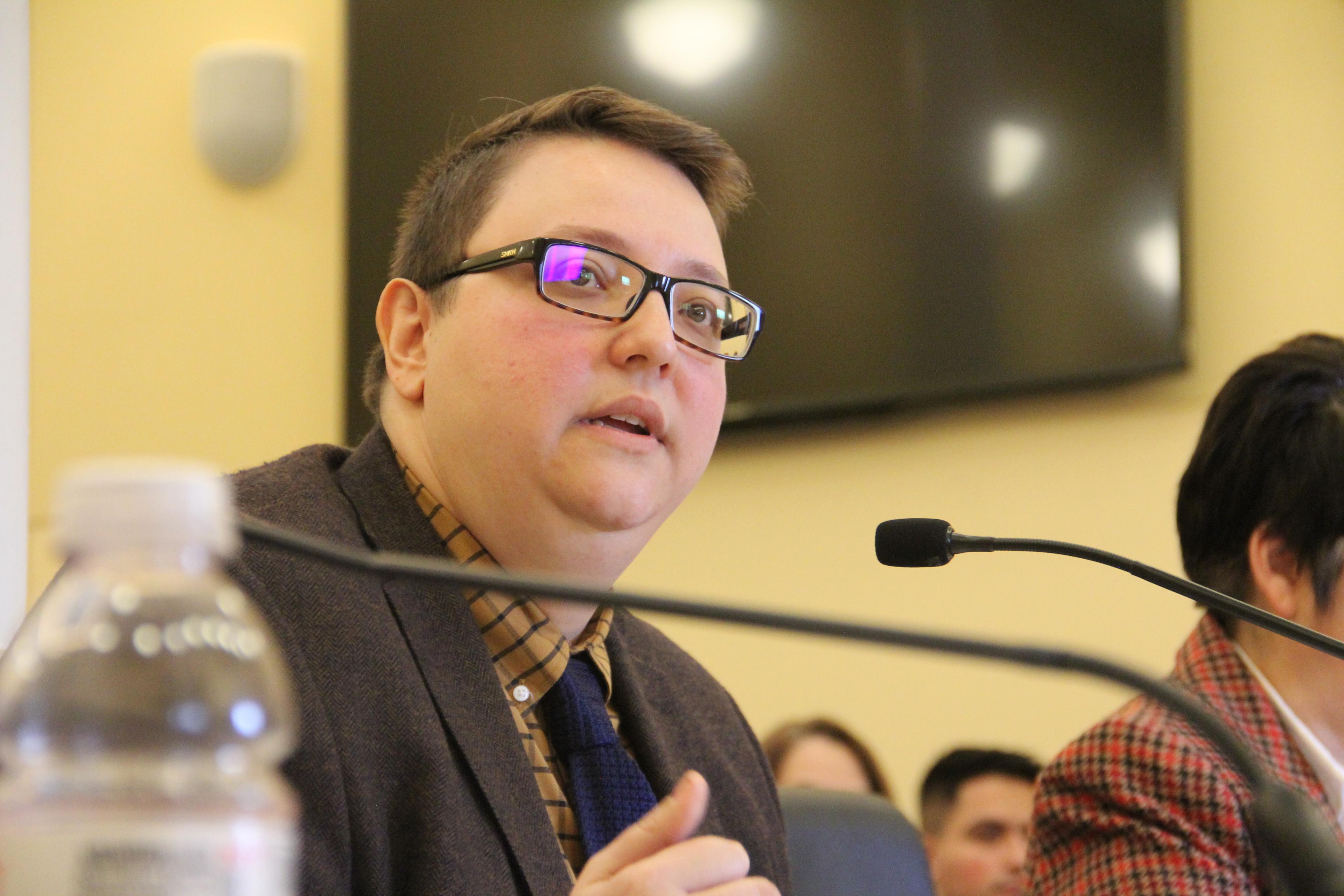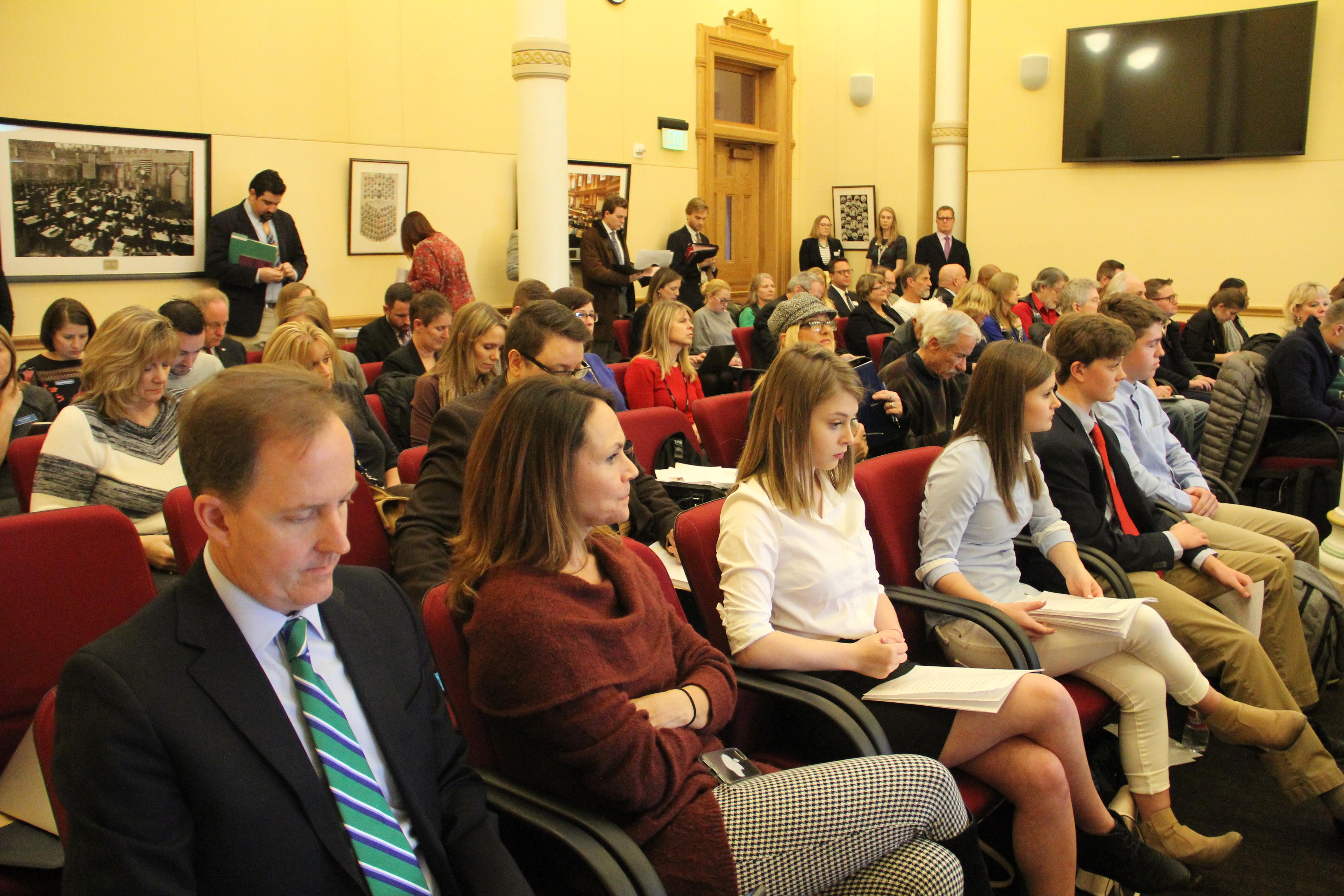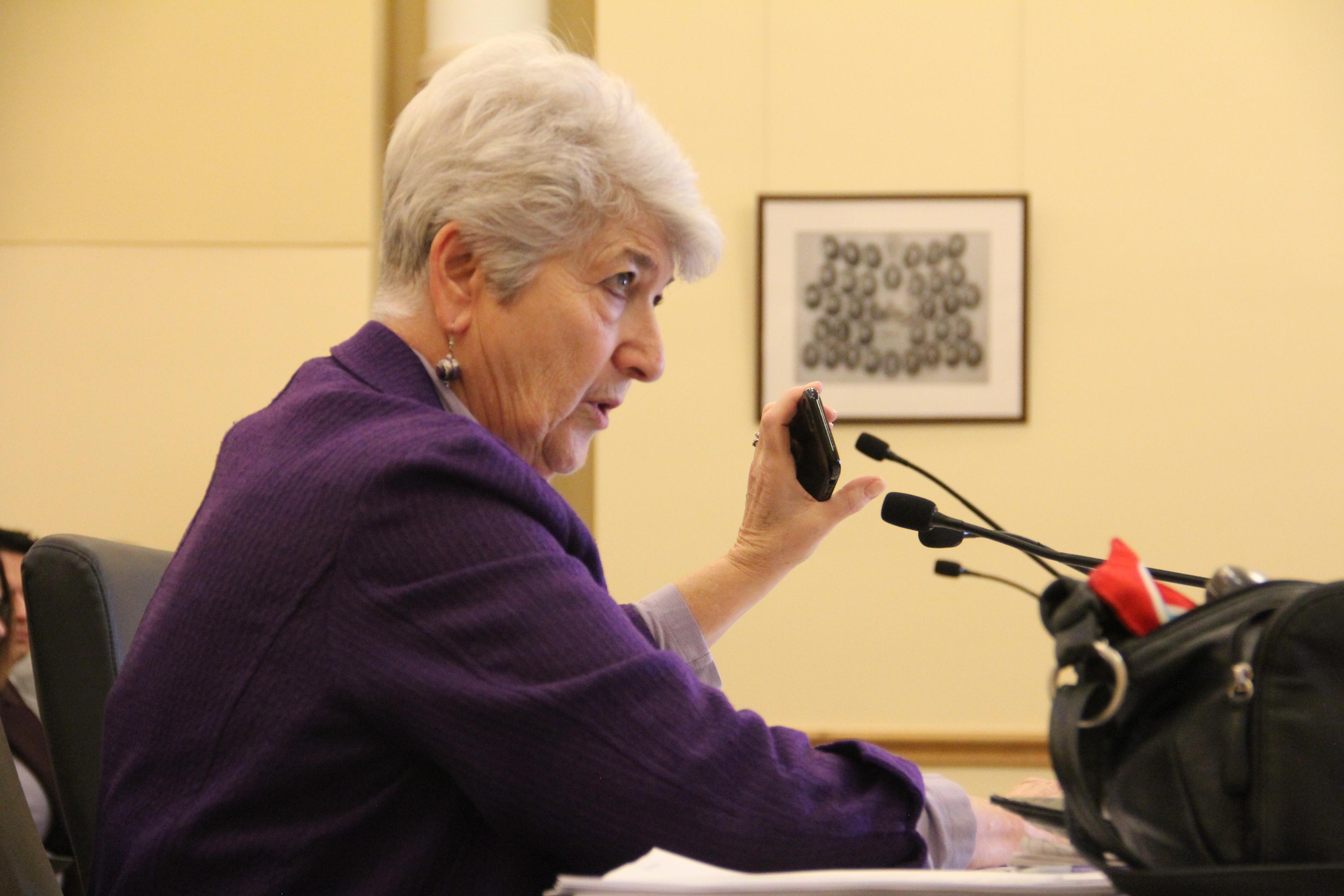State Sen. Lois Court took a moment while presenting before the Senate Transportation & Energy Committee on Thursday to hold up her cellphone.
Sitting before the committee, the gesture was a simple but clear way of showing what she's hoping to ban Colorado drivers from doing: Handling their cellphones while behind the wheel.
On Thursday, the committee heard testimony from supporters and opponents of Court's bill, SB19-012. Court isn't calling for an outright cellphone use ban for drivers, but instead wants to extend the current law prohibiting minors from holding their cellphones while driving to all ages.
The Denver Democrat said the bill is being presented in response to the current "health epidemic" in Colorado of cellphone use while driving. She said young people are primarily affected by crashes involving distracted driving.
The Colorado Department of Transportation estimates distracted driving causes 40 crashes every day. The agency reported 67 deaths in 2016 involved distracted driving. Texting while driving is illegal in Colorado.
"This is an epidemic of major safety proportions," Court said.
No decision was made during Thursday's meeting. The committee voted to postpone further action on the bill, which means it will come before the committee again on a later date. The bill is one Court has tried passing during previous sessions.
As it's currently written, the bill would create an exception for using cell phones if drivers use a hands-free accessory like Bluetooth or a cellphone car mount.
So anything beyond pushing a button to active Bluetooth, for example, would be violating the bill (like talking, texting, gaming or taking photos). You would still be allowed to use your phone if you need to report an emergency.
The bill wouldn't allow the seizure of devices, which means it doesn't open the possibility of cops taking your phone if you break this law.
The proposed law comes with some steep fines, starting at $300 and a 4-point deduction from your license for a first violation.
Nearly everyone in the room agrees that using your phone while driving isn't a great idea. At the center of Thursday's debate is whether Court's bill overreaches and imposes additional responsibilities for drivers, like purchasing accessories, and if current laws are already sufficient in addressing cellphone use while driving.
Responding to a question about current laws from Committee Chair Sen. Faith Winter of Westminster, Court said she's heard from law enforcement that if they see someone using a cellphone, they can't immediately tell if they're texting or punching a phone number to make a call, which is currently allowed.
"They want it to be universal," Court said.
Opponents believe the law could lead to profiling and create issues for low-income residents.
Denise Maes, Public Policy Director at Colorado ACLU, and Tristan Gorman, of the Colorado Criminal Defense Bar, were among the few people who on Thursday testified in opposition to the bill.

Both Gorman and Maes warned the bill could lead to racial profiling. Gorman said the bill could lead to uneven enforcement and increased pretextual traffic stops. She said the new law would increase infractions to a higher misdemeanor offense, which could lead to jail time, and that the bill is equating handling a cell phone to much more serious offenses.
Maes said the bill is too broad, but it does present a chance to study best practices to help address distracted driving. She went on to reference one of Gorman's points.
"You know how many people languish in jail on misdemeanors for their inability to pay the toll to get out on a bond?" Maes said. "All this does is bloat the misdemeanors criminal justice system by even more."
Requiring accessories could be an issue for low-income residents, Sen. Brittany Pettersen of Lakewood said, using her parents as an example. She suggested the high infraction costs could be problematic for others in a similar financial situation.
Sen. Kevin Priola of Brighton wondered if someone touching their phone to change a song on a music app like Spotify would be breaking the law under the bill. He considered people in his district with older vehicles may not have access to newer handsfree tech.
"Is that something that you can be pulled over for, and ticketed for, just trying to simply move on from hearing another seventies disco song that you didn't want to listen to?" Priola said.
Court said the point of the bill is from holding the phone and constantly tapping it.
"If you are activating or deactivating, that's fine," Court said, before adding, "We're not going to say that you can't change the station on your radio, we're not going to say that you can't pick your coffee up. That's not what we're after here."
Supporters think the law could save lives.
Jack Todd, of Bicycle Colorado, said he spoke as an everyday bicyclist, pedestrian and driver. He cited the number of deaths in Colorado roadways (620 last year) and said he doesn't see that number declining unless a bill like Court's is passed.
"If you believe this bill could save even one life on the roads by reducing distracted driving as I do, I ask you to support it," Todd said.
Like many people who testified, he's had his own run-ins with distracted drivers.
"All too often, I find myself slamming the breaks on my bike when I have the right of way, only to see a driver quickly looking up from that distracting screen, unaware that I was there," Todd said.
Northglenn resident Bob Frank said his large pickup truck has been hit by four distracted drivers over the past 17 months.

"Distracting driving is real, it's huge," Frank said. He believes the penalties imposed by the proposed bill would help get people's attention. "I feel it would have a greater effect."
At least one large law enforcement group is backing the bill.
County Sheriffs of Colorado Director Chris Johnson testified in support of the bill. The sheriffs association supported a similar bill during the last legislative session.
Johnson said he agrees with federal estimates suggesting distracted driving is probably underreported. He pointed out are plenty of ways for a person to get distracted; Johnson gave the example of someone spilling a coke inside a car.
"But I think at any given moment, there's far more cell phones in cars than there are cups of coke in the roadways of Colorado," Johnson said. "That increases the possibility that the cell phone could be used for another form of distraction."
Correction: An earlier version used an incorrect pronoun for Tristan Gorman. Denverite regrets the error.














